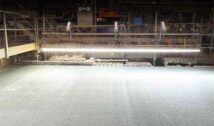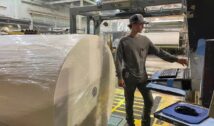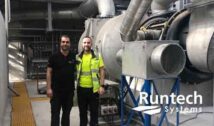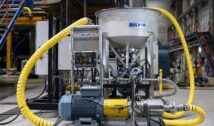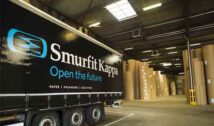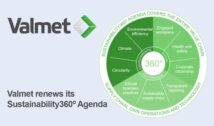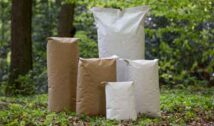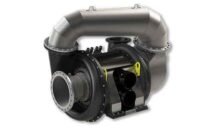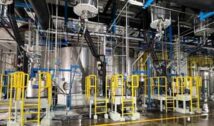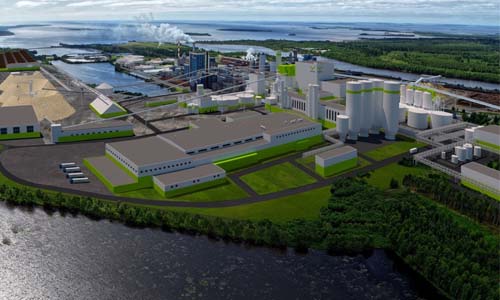
Metsä Fibre, part of Metsä Group, and Flootech have signed a contract on the delivery of a water plant for the bioproduct mill being constructed in Kemi, Finland. The delivery includes the water plant itself as well the installation and commissioning of its process equipment. The delivery has a very high degree of Finnish origin – more than 90 per cent – and it will provide dozens of person-years of work in Finland at Flootech.
Flootech is a Finnish water technology company that provides high-tech water and wastewater treatment solutions developed in Finland. Flootech specialises in resource-efficient water and wastewater treatment technologies and water recycling solutions for industry and power plants. This is a significant joint project for both companies and serves to extend their previous cooperation at Metsä Group’s mills in Finland, Sweden and Germany.
Flootech’s delivery to the Kemi bioproduct mill will include a microfiltration plant for the water intake, a treatment plant for the mill’s process water, a demineralisation plant and condensate treatment technologies. The water plant will produce very high-quality mill process water and salt-free water that will help to ensure the high operational reliability and production efficiency of the most efficient bioproduct mill in the world. The water plant has been designed to minimise the use of energy and chemicals in treating the water. The recycling of the water plant’s reject water is also a contributing factor in the mill’s extremely low specific water consumption.
“We have set high material efficiency and energy and environmental targets for the Kemi bioproduct mill. Consequently, we also require our partners to have both the most reliable technical solutions and a knowledge of our production requirements. The water plant utilises the best available technology and helps to ensure that we will achieve the best environmental performance possible under all conditions. With Flootech, we are well positioned to build an efficient and reliable bioproduct mill in Kemi,” says Jari-Pekka Johansson, Director for the Kemi bioproduct mill project at Metsä Fibre.
“We greatly value extending our long-term cooperation and the fact that we’ve been selected as the supplier of the water intake microfiltration plant, mill process water treatment plant, demineralisation plant and condensate treatment technologies for Metsä Fibre’s Kemi bioproduct mill. We will do our part to help Metsä Fibre operate resource-efficiently by delivering advanced water treatment solutions that provide Metsä Fibre with very clean water for the needs of the production process, while decreasing the water, energy and chemicals consumption of the production process as well as its load on waterways,” says Mikko Siivonen, CEO of Flootech.
The Kemi bioproduct mill project is progressing according to plan, and earthworks and pile-driving are currently being carried out. Around 350 people from 130 different companies are working at the site. The bioproduct mill project’s degree of Finnish origin is estimated to be high, at about 70 per cent. During the construction phase, the mill’s employment effect is estimated at nearly 10,000 person-years, of which more than 50 per cent will be in Kemi. The total number of employees working during the construction phase is estimated to be about 15,000. The investment in the new mill will secure the 250 jobs at the current Kemi mill for the coming decades. Through its direct value chain, the new bioproduct mill will employ around 2,500 people in Finland, some 1,500 more than the employment effect of the current Kemi pulp mill.
Totalling EUR 1.6 billion, the investment in Metsä Group’s Kemi bioproduct mill is the largest in the history of the Finnish forest industry. The Kemi bioproduct mill, which will operate entirely fossil-free and have a high degree of environmental, energy and material efficiency, will produce an annual 1.5 million tonnes of softwood and hardwood pulp, as well as many other bioproducts. The mill’s electricity self-sufficiency rate will be 250 per cent, which will further strengthen Metsä Group’s significant position as a producer of electricity based on domestic renewable fuels. The new bioproduct mill will start up in the third quarter of 2023.





